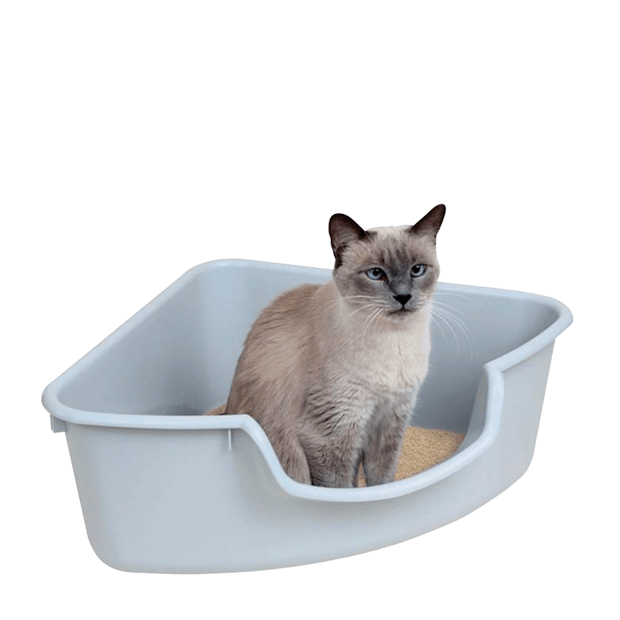Cat Dementia
This article is written by Pet Circle's qualified veterinarian,
Did you know that cats can experience similar neurological changes in their later life as humans can? While in human medicine, these changes may be known as Alzheimers, dementia or senility, in veterinary medicine, this is referred to as Cognitive Dysfunction.
Contents:
Symptoms of Dementia in Cats
What causes Dementia in Cats?
Treatment of Dementia in Cats
Environmental Modification
Enrichment
Supplements for Dementia in Cats
Anti-anxiety aids and medications
Further reading
Symptoms of Dementia in Cats
Cognitive dysfunction affects the brain, and is commonly associated with one or more of the following behavioural changes:
- Disorientation
- Changes in social interaction with humans and other pets
- Changes in the sleep-wake cycle
- House soiling
- Changes in activity levels - either increased activity, such as pacing and aimless wandering, or decreased activity
- Anxiety
- Vocalisation
What causes Dementia in Cats?
Cognitive dysfunction is caused by age-related changes to the brain, including oxidative damage, reduced brain mass, accumulation of beta-amyloid protein (a substance toxic to the brain tissue), reduced blood flow to the brain and dysfunctional neurons (nerve cells).
In cats, 28% of cats aged 11-14 years were found to be showing signs of cognitive dysfunction (most commonly changes in social interactions), and 50% of cats 15 years of age and over (these older cats most commonly showed excessive vocalisation and aimless activity).
Treatment of Dementia in Cats
Take a trip to your vet first
While it can be tempting to conclude that behavioural changes in our pets are simply due to ageing, it is important to have your cat checked out by your veterinarian, to determine whether cognitive dysfunction may be contributing to the changes. Cognitive dysfunction is a diagnosis of exclusion, which means that other possible medical causes of these changes, such as hormonal diseases, arthritis, dental disease, high blood pressure (often as a result of kidney disease), cancer and diminishing sensory capacities (predominantly vision and hearing loss) should be ruled out first. If your veterinarian does diagnose cognitive dysfunction in your cat, they may prescribe some specific medications to help reduce the decline.
In addition, there are other strategies you can implement to help:
Environmental Modification for Cats with Dementia

Modifying your cat's environment can help to meet their needs and enhance their comfort.
⢠Ensure that food and water bowls are easily accessible, and extra bowls can be offered in different locations around the house.
⢠Offer extra toileting opportunities - extra litter trays can be placed in different areas of the house, and those with a lower lip can help your senior cat to step in and out of them easily.
⢠Increase daytime exercise and play, and reduce distractions and disturbances in the evening to help combat sleep wake cycle changes and reduce night time waking.
⢠Provide private resting areas away from foot traffic and household activity.
⢠Provide padded surfaces for resting and traction around the house.
⢠Keep your petâs routine consistent, to help reduce anxiety.
Enrichment for Cats with Dementia

Environmental and cognitive enrichment has been shown to improve cognitive function, and delay cognitive decline in cats. Regular exercise, the rotation of cat toys and the introduction of new ones, and social interactions have been shown to improve neural plasticity (the ability of the brain to adapt and change) and reduce the loss of brain cells.
Diets and Supplements for Cats with Dementia

Along with specifically formulated senior cat food, dietary supplements may help to support cognitive function and reduce age-related cognitive decline with specific ingredients like essential fatty acids, antioxidants and medium-chain triglycerides. Essential fatty acid and antioxidants help to support brain function and reduce the oxidative injury to the brain. The combination of fish oil, B vitamins, antioxidants and arginine has been shown to have significant cognitive benefits in cats, and may slow age-related decline in cognitive function.1
Anti-anxiety Products for Cats with Dementia
Age-related behavioural changes can not only be upsetting for us humans, but they can also be distressing for your cat. Anti-anxiety products can be extremely helpful for cats experiencing mild anxiety related to these changes. For those with more severe anxiety, or trouble settling, your regular vet may be able to prescribe some medication to help your cat to settle.
Top anxiety aids for cats:
Feliway is a manmade version of the odourless pheromone normally left by cats when they rub against objects in their environment. This pheromone is usually released by your cat when he or she feels happy or content.
Containing a natural product derived from casein, Zylkene can help to reduce anxiety related to any stressful situation.
Vetalogica Tranquil Formula For Cats

Tranquil Formula for Cats works by delivering natural ingredients plus Tryptophan and B group vitamins to maintain an ideal emotional balance.
This Rufus and Coco Anxiety Aid is formulated with essential amino acid, Tryptophan. Tryptophan is a natural precursor for Serotonin (the happy hormone!) and helps to promote feelings of calm and wellbeing
Â

Rest assured that though cognitive dysfunction in cats is not curable, there are lots of strategies you can implement to reduce cognitive decline and support your pet as they age.
Further Reading
Peeing Outside the Litter Tray, Marking and Spraying - Why Do Cats Do It?
Life Lengthening Pet Health Tips
Want to know more? Check out our Discover Page for more tips from our Vet Squad on keeping your pets happy and healthy.
Sources
1. Pan, Y., Araujo, J. A., Burrows, J., de Rivera, C., Gore, A., Bhatnagar, S. & Milgram, N. W. (2013). 'Cognitive enhancement in middle-aged and old cats with dietary supplementation with a nutrient blend containing fish oil, B vitamins, antioxidants and arginine.' British Journal of Nutrition, 110, 40-49. https://pubmed.ncbi.nlm.nih.gov/23211671/, accessed 22/3/22.




































